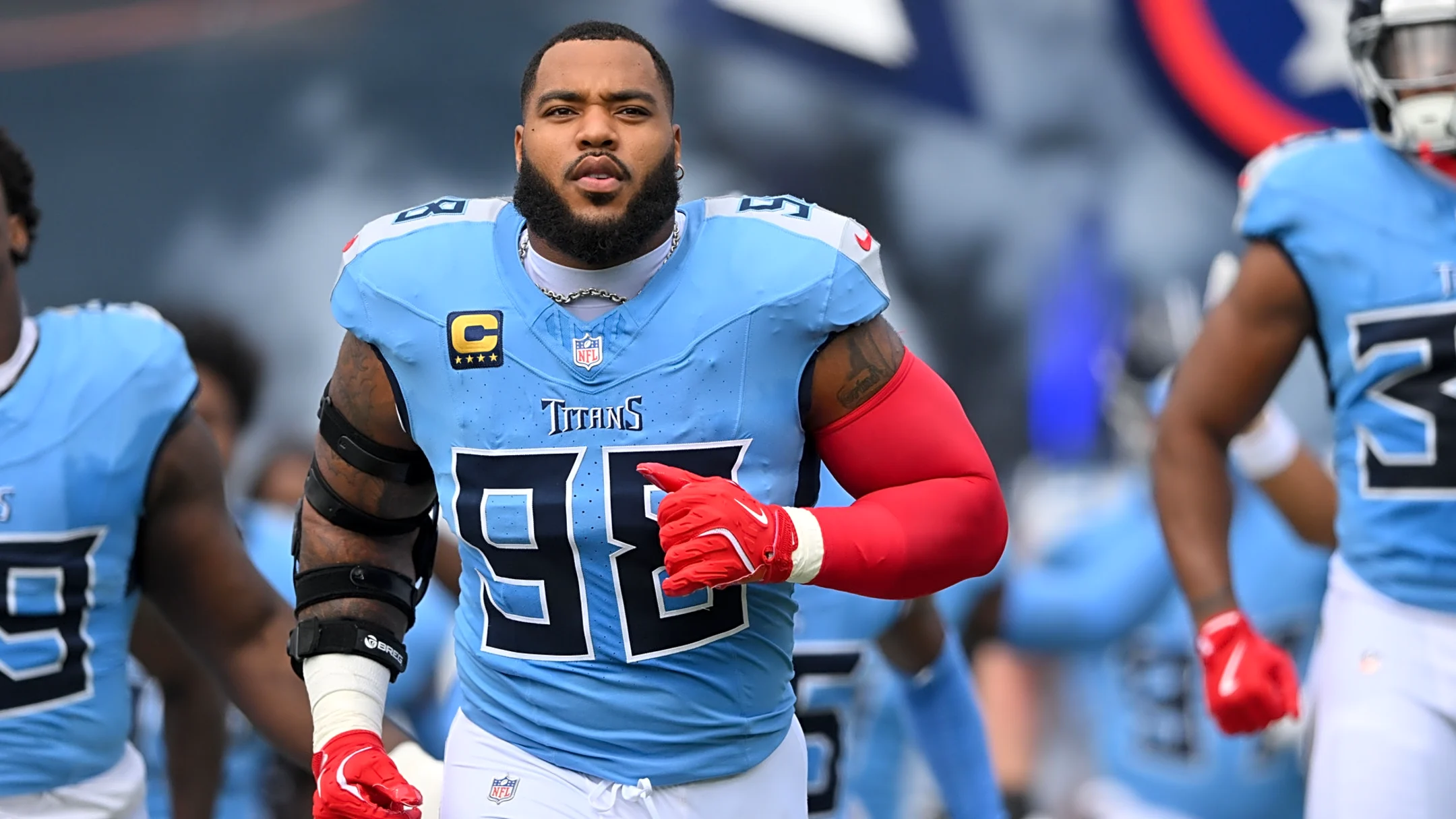By Jason Dayee,Total Apex Sports
Copyright yardbarker

The Tennessee Titans made things right with their defensive cornerstone this week, and frankly, it was about time.
Jeffery Simmons, the 6-foot-4, 305-pound force who anchors Tennessee’s defense, received a well-deserved contract adjustment that puts an extra $632,529 in his pocket for the 2025 season. However, this isn’t just about money. This is about respect, fairness and acknowledging when you’ve made a mistake.
Why This Contract Revision Matters More Than You Think
When the NFL expanded from 16 to 17 regular season games, it created a domino effect that rippled through every contract negotiation across the league. Players suddenly had to work an additional game without additional compensation unless their deals specifically accounted for the change. For a player of Simmons’ caliber, that oversight stings.
The Titans signed Simmons to a four-year, $94 million extension in 2023, a deal that reflected his status as one of the premier defensive tackles in the game. But somewhere in the contract language, that 17th game check got lost in the shuffle. It happens more often than you’d think in a league where contracts can stretch into hundreds of pages of legal jargon.
What makes this situation particularly noteworthy is how the Titans handled the correction. Rather than dragging their feet or forcing Simmons to play out the deal as written, they proactively addressed the oversight. According to NFL Network’s Ian Rapoport, Simmons’ new agent, Todd France of Athletes First, negotiated to retroactively include the 17th game check as a signing bonus. It’s a creative solution that gets everyone what they want without restructuring years or adding complexity.
The Ripple Effect Across the League
This move by Tennessee sends shockwaves through NFL front offices, and you can bet other star players are taking notice. Pro Football Talk’s Mike Florio specifically mentioned New York Jets defensive tackle Quinnen Williams, New York Giants defensive tackle Dexter Lawrence II, and Buffalo Bills quarterback Josh Allen as players whose contracts don’t account for that extra game.
Imagine being Josh Allen, the face of the Bills franchise, knowing you’re playing 17 games but only getting paid for 16. That’s not a comfortable conversation for Buffalo’s front office. Williams and Lawrence, both defensive stars in their own right, probably have their agents making some phone calls right about now.
The precedent is set. When a franchise as traditionally conservative as the Titans willingly opens their checkbook to correct an oversight, it signals to the rest of the league that this is the right thing to do. Other teams might find themselves facing similar conversations with their star players, and they’ll have to decide whether they want to be proactive like Tennessee or reactive after the fact.
Simmons Continues to Prove His Worth
At 28 years old, Simmons isn’t just collecting a paycheck. He’s earning every dollar of that massive extension through his play on the field. Last season, he racked up 76 total tackles, five sacks, and 11 tackles for loss while earning his third Pro Bowl selection. Those aren’t just numbers on a stat sheet; they represent consistent, elite-level production from a player who’s been the heart of Tennessee’s defense for years.
The fact that Simmons got his first sack of the 2025 season during Tennessee’s Week 1 loss to Denver shows he’s not slowing down. He’s adapted his body and his game, reportedly losing 20 pounds during the offseason to increase his mobility without sacrificing power. Head coach Brian Callahan noted that Simmons hit 18.2 miles per hour during practice, an impressive speed for any NFL player, let alone a 300-pound defensive lineman.
A Model for How Business Should Be Done
What happened between Simmons and the Titans represents everything that’s right about how NFL business should be conducted. When you make a mistake, you own it. When you have a star player who’s lived up to his end of the bargain, you make sure he’s treated fairly.
This wasn’t a contract extension or a renegotiation. This was simply acknowledging that when the league added a 17th game, players who signed deals before that change deserved to be compensated accordingly. The fact that Tennessee acted without being forced into it speaks volumes about the organization’s integrity.
For Simmons, this resolution removes a potential distraction and reinforces his value to the franchise. He can focus on what he does best: disrupting offensive lines and making life miserable for opposing quarterbacks. For the Titans, it’s a small price to pay to keep one of their best players happy and motivated.
As Simmons himself said after Tennessee’s recent struggles, “We gotta do a better job of finishing.” With this contract situation behind him, he can channel all his energy toward helping the Titans do exactly that.



